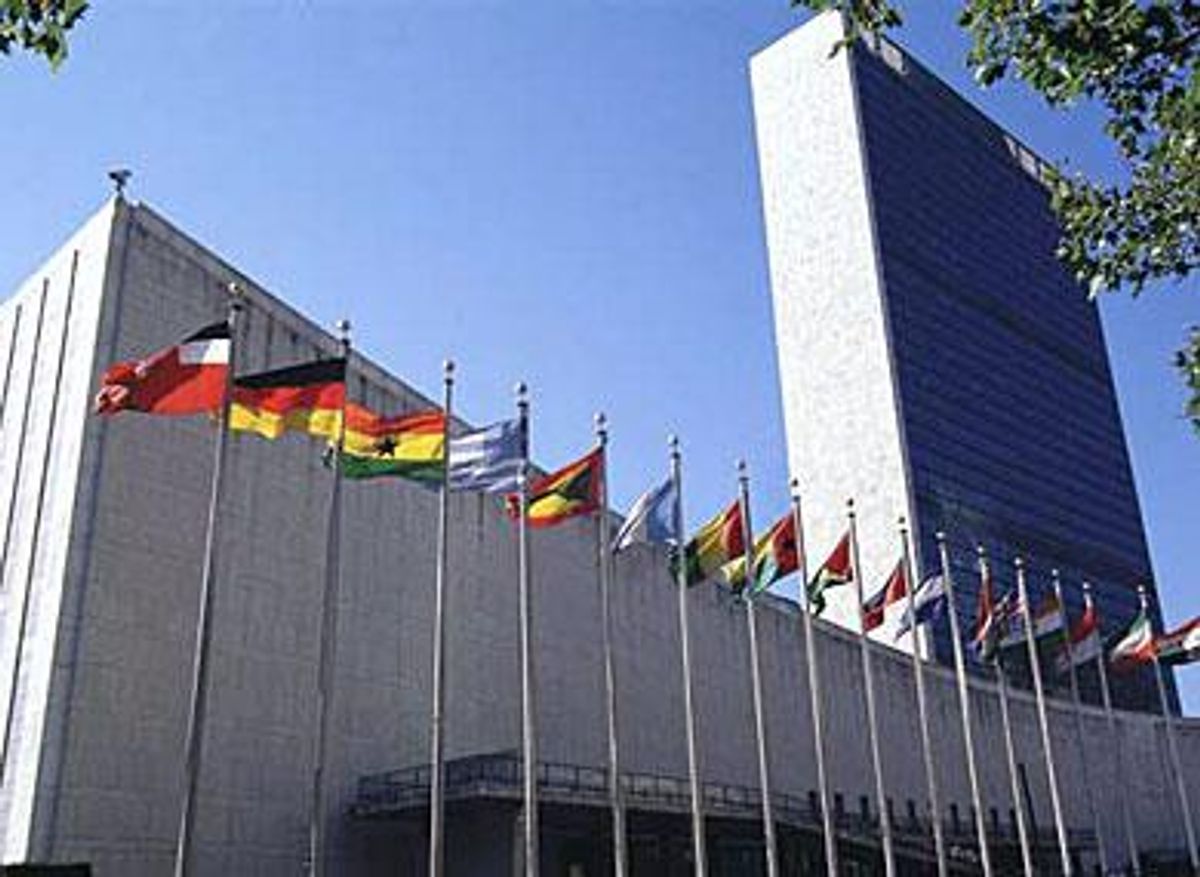World
U.N. Report Calls On Countries to End Anti-LGBT Discrimination
U.N. Report Calls On Countries to End Anti-LGBT Discrimination

By continuing to use our site, you agree to our Private Policy and Terms of Use.
U.N. Report Calls On Countries to End Anti-LGBT Discrimination
U.N. Report Calls On Countries to End Anti-LGBT Discrimination

A report released Thursday by the United Nations High Commissioner for Human Rights calls on countries to abolish laws that criminalize homosexuality and to include sexual orientation and gender identity in comprehensive anti-discrimination legislation, among other recommendations.
Commissioned by a historic resolution on anti-LGBT discrimination passed by the UN Human Rights Council in June, the first-of-its-kind report from Navanethem Pillay, the U.N.'s top human rights official, provides an overview of discrimination and violence around the world, including in the United States. The 25-page report reviews applicable international standards and obligations before documenting the current status of anti-LGBT discrimination and violence, followed by a list of recommendations based in international human rights law.
"In all regions, people experience violence and discrimination because of their sexual orientation or gender identity," says the introduction of the report. "In many cases, even the perception of homosexuality or transgender identity puts people at risk. Violations include - but are not limited to - killings, rape and physical attacks, torture, arbitrary detention, the denial of rights to assembly, expression and information, and discrimination in employment, health and education."
"Violence against LGBT persons tends to be especially vicious compared to other bias-motivated crimes," said the report, citing work from the Organization for Security and Cooperation in Europe.
While noting that more than 10 countries including the United States have moved to repeal laws criminalizing homosexuality since 2000, the report points out that 76 countries retain laws criminalizing people for sexual orientation and gender identity. The death penalty may be applied for consensual homosexual conduct in at least five countries.
Saying that "a pattern of human rights violations emerges that demands a response," the report in conclusion called on member states, which it said often overlook such incidents, to act with a list of eight recommendations. Among the recommendations is to, "repeal laws used to criminalize individuals on grounds of homosexuality for engaging in consensual same-sex sexual conduct, and harmonize the age of consent for heterosexual and homosexual conduct; ensure that other criminal laws are not used to harass or detain people based on their sexuality or gender identity and expression, and abolish the death penalty for offences involving consensual sexual relations."
The report also calls for member states to "enact comprehensive anti-discrimination legislation that includes discrimination on grounds of sexual orientation and gender identity among prohibited grounds and recognizes intersecting forms of discrimination; ensure that combating discrimination on grounds of sexual orientation and gender identity is included in the mandates of national human rights institutions."
The High Commissioner recommended that the U.N. Human Rights Council keep up to date about violence and discrimination linked to sexual orientation and gender identity, and encouraged investigations and reports within the U.N. system to continue.
Advocates hailed the report, released just one week after the Obama administration announced steps to more fully integrate LGBT human rights into its foreign policy. The White House issued a presidential memorandum and Secretary of State Hillary Clinton told a U.N. audience in Geneva that LGBT rights are human rights.
"This is a groundbreaking U.N. effort that restates international law and makes it clear that criminalizing people because of their sexual orientation or gender identity is a fundamental denial of their human rights and human dignity. So, too, are acts of violence and discrimination," said Marc Bromley, chair of the Council for Global Equality. "Based on the standards articulated in this UN document, all countries, including our own, still have more to do to fully recognize the human rights of their LGBT citizens. The report will be debated at a meeting of the U.N. Human Rights Council in March, and with South Africa leading the discussion, the March presentation will ensure that this report guides the work of the U.N.'s human rights experts worldwide."
Jessica Stern, acting executive director of the International Gay and Lesbian Human Rights Commission, said, "The report is a tribute to all of the activists who have fought for recognition of homophobic violence and transphobic discrimination over decades, often in the face of extreme hostility. It will serve as an invaluable aid to each one of us who seeks to advance LGBT rights - not only at the United Nations but in cities and towns around the world."
Read the report here. The document is also available in Spanish, Russian and Arabic.